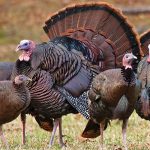Poor, white and not quite forgotten
By Stephen E. Smith
The presidential election is either over or is about to be, and, barring an unforeseen catastrophe, we ought to be breathing a collective sigh of relief. But in our hearts we know the truth: It ain’t over yet. The media, including the publishing industry, aren’t about to let us rest. We’ll no doubt be obliged to examine in excruciating detail the cause-and-effect relationships that inflicted this grievous wound on our national psyche.
Publishers, of course, get us coming and going. White Trash; The Making of Donald Trump; Hillary’s America; The Year of Voting Dangerously, etc. — Amazon lists at least 17 books that address the pre-election mêlée, enough reading to keep us bleary-eyed and brain-bruised until the next election cycle, and well beyond.
Of these many offerings, Hillbilly Elegy: A Memoir of a Family and Culture in Crisis, by J. D. Vance, has been the chief beneficiary of our need to grasp the incomprehensible. Published in late June, this Horatio Alger memoir shot to the top of The New York Times and Amazon.com best-sellers lists and stayed there. This was due in large part to promotion by the author and Amazon that fostered the belief that Hillbilly Elegy offers a profound insight into the rise of Donald Trump as a presidential candidate.
A quick read of Amazon’s “Editorial Reviews” is explanation enough: “What explains the appeal of Donald Trump? . . . J.D. Vance nails it” (Globe and Mail); “You cannot understand what’s happening now without first reading J.D. Vance . . . .” (The American Conservative), and so forth. Only The New York Times acknowledged a mild albeit flawed apprehension of fact: “Mr. Vance has inadvertently provided a civilized reference guide for an uncivilized election . . . ,” “inadvertently” being the operative word.
In February, Vance wrote an op-ed for USA Today headlined: “Trump Speaks for Those Bush Betrayed”: “. . . .what unites Trump’s voters,” Vance wrote, “is a sense of alienation from America’s wealthy and powerful.” In a print interview with Rod Dreher, senior editor at The American Conservative, Vance stated, “The simple answer is that these people — my people — are really struggling, and there hasn’t been a single political candidate who speaks to those struggles in a long time. Donald Trump at least tries.” Vance’s appearances on ABC, CNN and NPR only reinforced this perception, and by the time he arrived on the set of “Morning Joe,” Vance’s criticism was even more focused, asserting that Donald Trump is “just another opioid” to many Americans struggling with loss of jobs, broken families and drug addiction.
All of which begs the question: Does Hillbilly Elegy explain the rise of Donald Trump?
It doesn’t. No amount of tortured exegesis can conclude with a calculated degree of certainty that the anecdotal examples offered in Hillbilly Elegy lead to a statistical generalization regarding the wide-ranging support garnered by the Trump candidacy. Despite the claims of critics and the author, the book does not present, directly or indirectly, a viable explanation for the recent national unpleasantness — and the hype surrounding the publication of Hillbilly Elegy amounts to little more than a subtle form of literary bait and switch.
Misrepresentations aside, it’s safe to say that Vance has written an insightful and readable memoir that details the estrangement of a segment of America’s displaced white underclass. His personal story, which comprises most of the text, is straightforward: Poor boy from a broken, drug-befuddled family wants to make good and does. The sociological narrative is also immediately explicable: As “hillbillies” migrated from Kentucky and other Southern mountain states, they clustered in desultory communities around the factories that offered them work. But this relocation came at a price. The traditional culture that once rendered support and stability from birth to death was sacrificed to economic prosperity. When the high-paying jobs disappeared, neighborhoods of poor people were left behind, lacking the social networks that sustained them in their mountain communities.
To his credit, Vance’s message is one of personal responsibility. He has no patience with convenient excuses or the tendency to shift blame to the media, politicians, or the middle and upper classes. Succinctly stated, his advice is to pull up your pants, turn your hat around and make something of your life.
Hillbilly Elegy possesses the same appeal that propelled Rick Bragg’s 1999 All Over but the Shoutin’ onto the best-sellers list — it’s thoughtful, compelling in its grim detail, and ultimately faith-affirming. No red-blooded American can abandon the belief that any lucky, talented, hardworking schmo can become a success, but the wise reader will understand that Vance’s story is not an allegory for life; it’s merely the recounting of a series of random events arranged in such a way as to suggest meaning.
Readers should also bear in mind that better sociological studies have come and gone without notice. One is reminded of Linda Flowers’ 1990 Throwed Away, which detailed the economic exploitation of eastern North Carolina sharecroppers and tenant farmers.
As for articulating the emotional toll taken on those Kentucky mountain people who migrated north, poet Jim Wayne Miller summed up their sense of loss in five lines from his 1980 collection The Mountains Have Come Closer. The final stanza of the poem “Abandoned” reads:
Or else his life became the house
seen once in a coalcamp in Tennessee:
the second story blown off in a storm
so stairs led up into the air
and stopped.
Stephen E. Smith is a retired professor and the author of seven books of poetry and prose. He’s the recipient of the Poetry Northwest Young Poet’s Prize, the Zoe Kincaid Brockman Prize for poetry, and four North Carolina Press awards.


